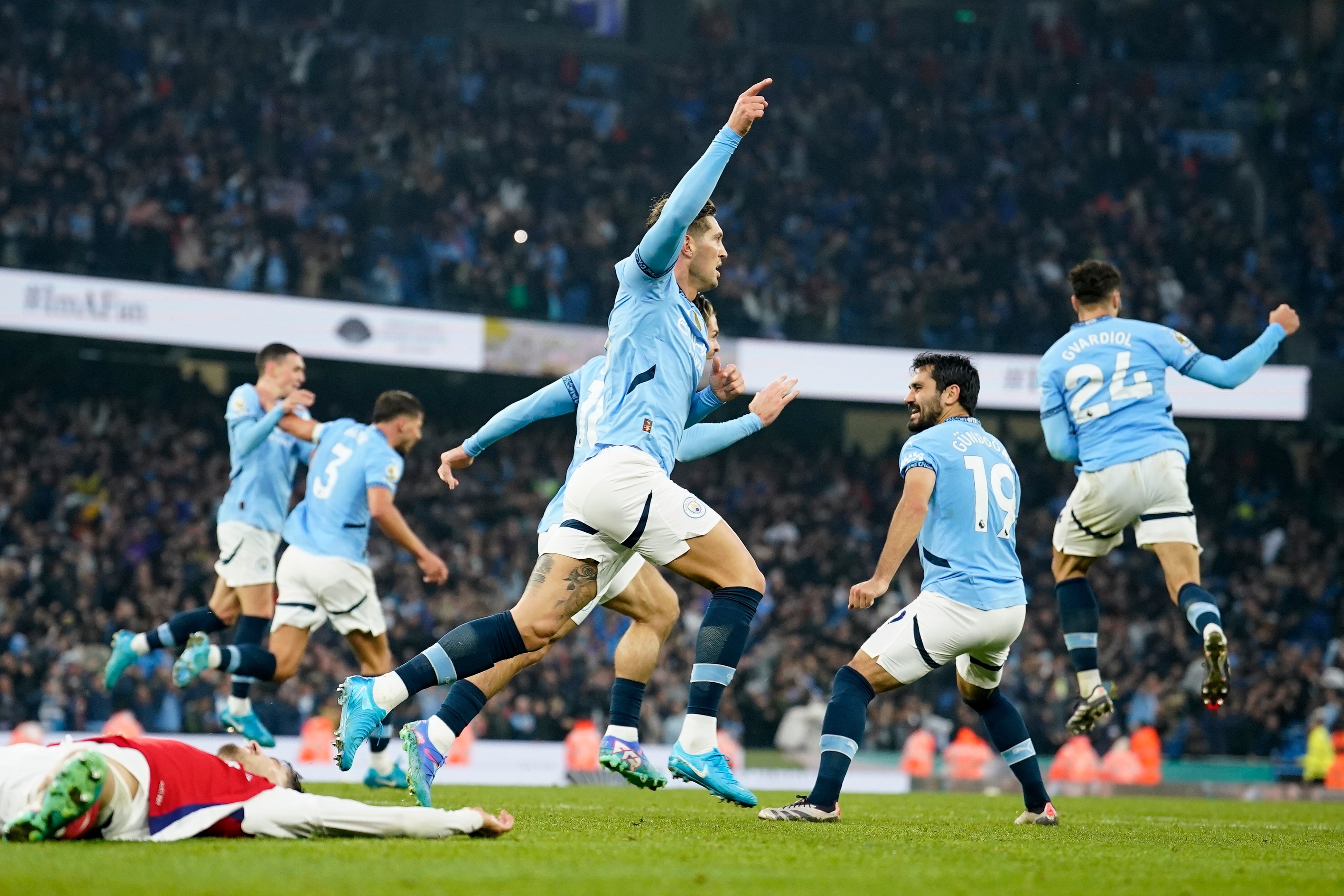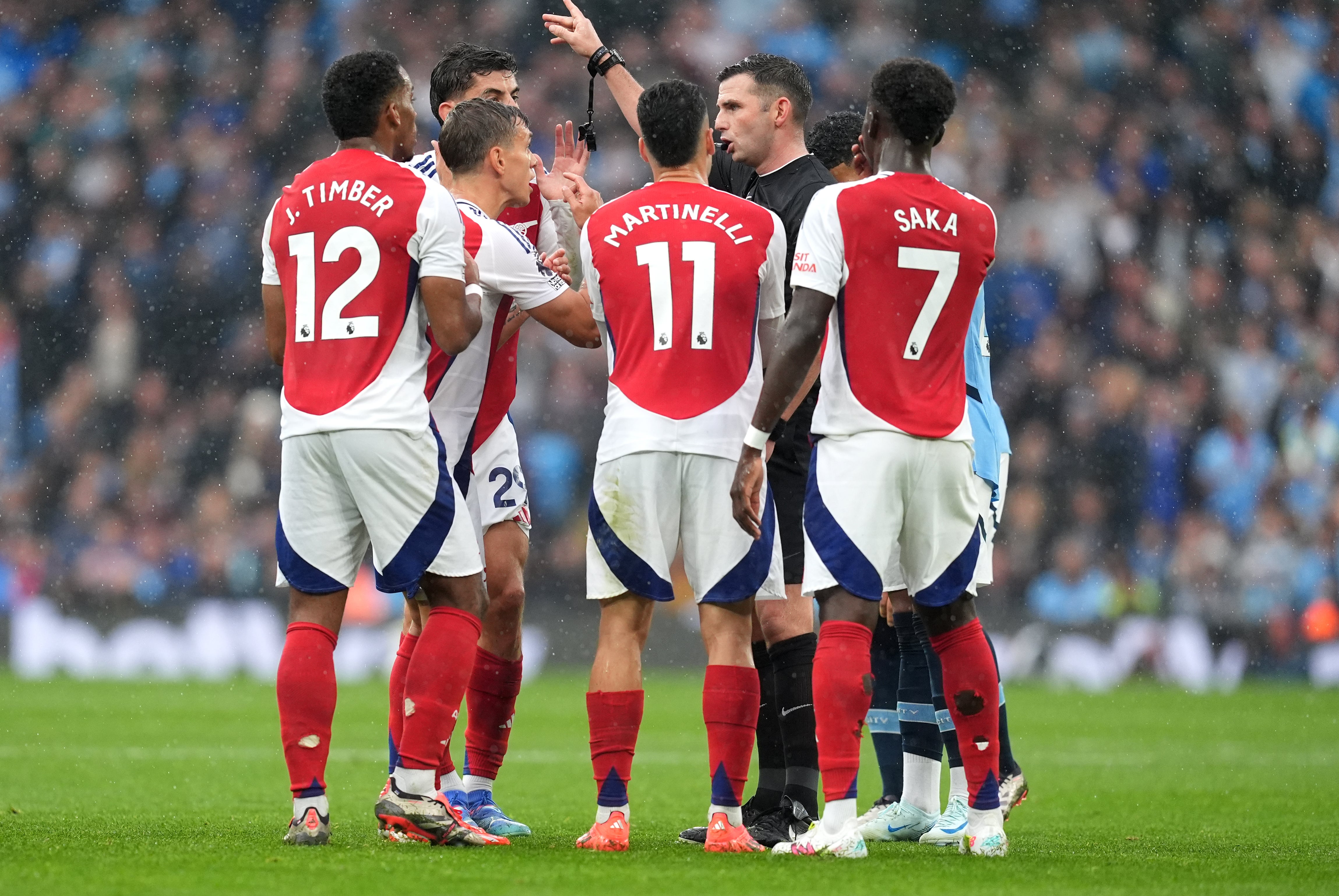A draw that felt like a defeat for Arsenal in the moment, and from a match – and especially a climax – that certainly didn’t feel like a mere Premier League match in September. Everyone knew the stakes were much higher.
Through that, it actually felt like a Champions League semi-final, and occasionally looked like one, too. Specifically, Jose Mourinho’s Internazionale against Pep Guardiola’s Barcelona in 2009-19.
Unlike that famous match, the Catalan this time got the late goal he desperately desired. Manchester City showed their admirable spirit, that has carried this squad through a lot of controversies over the past few years. This game was the very best of the Premier League in purely football terms, even if it was underscored by all manner of modern football issues. The very consequence of the result could be changed by the hearing. City insist upon their innocence. The actual team plays on through it, as Guardiola has instilled them with this relentlessness.
It is why, despite the late disappointment, Arsenal might well look upon this with a lot more encouragement once the emotions from the end die down.
They did not get that huge win away to City, sure, ultimately failing to emulate what Arsene Wenger’s side did at Manchester United in 1997-98. That will leave that lingering doubt about this team’s credentials, but no one can doubt their own spirit now. They also came through a lot more adversity here.
That was first when Arsenal initially went 1-0 down, from a period when City were destroying Mikel Arteta’s side. The fine opening goal was all of that dominance distilled into one fine display of this team’s quality. There was the turn from Savinho, the run between the centre-halves from Erling Haaland, the pass and then the wonderfully inventive finish after the Norwegian had stayed onside. It crowned what was probably City’s best football performance since the 4-0 win over Real Madrid in the 2022-23 Champions League semi-final.
Arsenal showed their own intelligence and individual quality to get through that, through the quick thinking before Riccardo Calafiori’s sublime goal. It was fine character from the defender too, given he had been the player sent the wrong direction by Savinho. Arsenal then stepped up to seize the shift in momentum, really pushing City back. That was right to Ederson’s goal-line, as Gabriel plundered yet another set-piece. The header was from just yards out because of the quality of the delivery from Bukayo Saka. The whip alone was something else.
Arsenal were looking like they might do something new, that they might get that long-awaited win. It was there for them – for a time. It was why the Leandro Trossard red card was so frustrating. This was also where Arsenal showed real character as a team. It was the adversity going to another level.
Guardiola’s City, after all, have not been beaten at home by a proper title challenger in a game of genuine consequence since Chelsea in 2016-17. And that’s with 11 men.

On the red card, Trossard was silly, and he could have had no complaint if he had been given a second yellow for the initial barge. That fact alone undercuts some of the arguments about the decision. At the same time, booking a player for the manner Trossard kicked the ball away seems pedantic and impossible to consistently enforce. People were already pointing to Jeremy Doku doing similar. It is one of those directives that could have huge unintended consequences, and only create more controversy. That’s because of the difficult balance between enforcing such a rule all the time and the smooth running of a fluid sport, as well as the manner it invites inevitable criticism about consistency. It is known that some referees were doubtful about bringing it in due to precisely this.
Either way, the decision transformed this game, turning it from a proper Premier League back-and-forth into a more vintage game of extreme defence against extreme attack.
The end result has already invited debate over what dictated the final result. Did City run out of ideas? Did Arsenal time-waste too much, something all the more ironic given the Trossard decision? It’s probably none of that.
This was really one of the best defensive units in world football right now against one of the best attacking teams for the past decade. Such contrasting qualities inevitably led to occasional stalemates.
People will say teams win with 10 men in other such games, but that doesn’t happen in the same way in the modern era. And it especially doesn’t happen away to City in matches of real consequence. Arsenal were exceptional in that context, both collectively and individually. David Raya is increasingly and consistently vindicating Mikel Arteta’s decision to go with him, with so many big moments. There were two more fine saves here. Jurrien Timber is growing into a defender of real substance. Gabriel was again outstanding, the impact of his display reflected by how Haaland was clearly so frustrated that he bounced the ball off the defender after John Stones’ equaliser.

What was so impressive about Arsenal’s collective defending was how they constantly shored up space just when City thought they had an opening. It ensured that it was always Guardiola’s least effective attacking players on the ball in the most dangerous areas, as witnessed in so many aimless long shots from Manuel Akanji, Kyle Walker and – especially – Ruben Dias. The defender eventually realised how futile that was that, when it opened up for one strike, he just played it sideways.
Arsenal forced them into that, as well as the kind of equaliser that wasn’t exactly characteristic of Guardiola. As one figure close to the Arsenal set-up quipped after the game, it was like a goal a lower-league team would score. A set-piece. Needs must, though. City did what was required – for now. They may now need more.
There is of course one huge detail missing from all this, that oddly became strangely easy to overlook given all of the drama that followed. That was the sad injury to Rodri.
It is such a shame a player suffers a moment like that, especially given his quality, and how he himself had complained about the calendar in the last week. This is the cost.
It could well mean, for all the focus on the final moments, the most consequential spell in this entire game was the midfielder’s injury and the way Arsenal so quickly scored. It turned a 1-0 City lead that could have gone to 2-0 or even 3-0 into a totally different match, with the champions now concerned about their best player.
That could end up hugely significant, if for the wrong reasons. For now, the debate is already going on about Arsenal’s euphemistically described “game management” – ie time-wasting. They did what they must, which was different to what was expected. The real moment of significance may have come long before the late equaliser.

